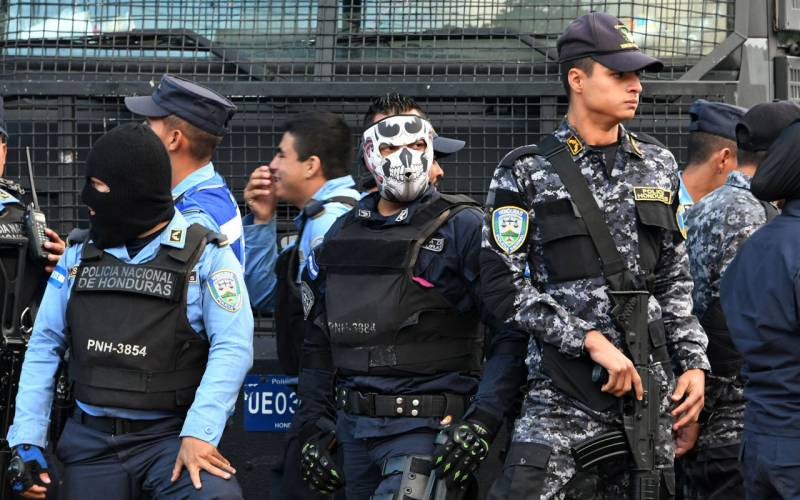El Salvadoran lawmakers declared a state of emergency on Sunday, according to the president of the Legislative Assembly, restricting civil liberties and increasing police power as the country grapples with gang-related violence that has claimed the lives of dozens in just two days.
El Salvador's gang violence has reached new heights, with 62 people slain just on Saturday, according to police.
Official records show that 12 of the homicides occurred in the central department of La Libertad, with nine apiece in the capital San Salvador and the western department of Ahuachapan. The remainder was dispersed throughout the country's remaining departments.
Several leaders of the Mara Salvatrucha (MS-13) gang had been detained hours before over the wave of killings by police and the military.
"We will not give up the fight against gangs; we will not stop until the criminals responsible for these crimes are apprehended and brought to justice," the country's National Civil Police said on Twitter.
In reaction to the uptick in violence, President Nayib Bukele urged the assembly, which is controlled by his ruling party, to declare a state of emergency, which restricts certain liberties.
Early Sunday morning, lawmakers passed a proclamation that "declares an emergency regime throughout the national territory as a result of major disturbances of public order by criminal groups."
In a tweet, Legislative Assembly President Ernesto Castro said, "We ratify the #emergencyregime that will allow our Government to defend the lives of Salvadorans and tackle criminality head-on."
- 'Leave it to the agents to do their work.' -"Since yesterday, we have seen a new surge in killings, which we had fought so hard to prevent," Bukele said in a statement released by Congress president Ernesto Castro on Twitter.
"As we combat criminals on the streets, we need to discover out what's going on and who's funding it."
"Let the agents and troops do their work," Bukele said, adding that the government "must defend them against the charges of those who support the gang members."
Ricardo Martinez, a top government human rights lawyer, urged the public to "stay calm" and contribute to the country's development of "a culture of peace."
El Salvador experienced another increase in homicides last November, with 45 individuals killed in three days.
According to officials, the Mara Salvatrucha and Barrio-18 gangs, among others, have around 70,000 members in El Salvador, and their operations include homicides, extortion, and drug trafficking.




